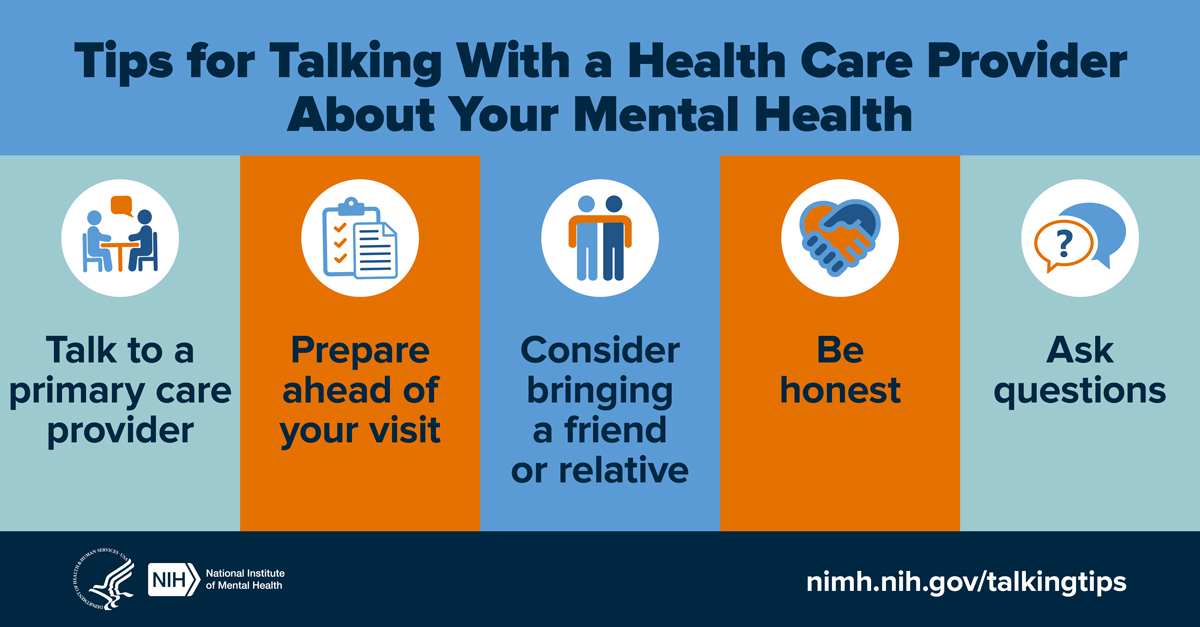Suicide Prevention: Know the Warning Signs
By Kristy Warren
September is National Suicide Prevention Month, which aims to raise awareness of suicidal behavior and prevention resources. We all want to be there for those we love, but the stigma around mental health means having honest conversations can be challenging and warning signs may be missed.
Whether it’s job insecurity, difficult relationships, financial struggles, loss, or health issues, all of us face uncertainty and hard times at some point in our lives. In times of crisis and uncertainty, it is normal to experience some level of stress, anxiety, depression, anger, and/or sadness, but if you or someone you know feel persistently sad, hopeless, numb, or scared, talk to a mental health professional for support and guidance.
Suicide is a hard topic to talk about, but it's a leading cause of death in the United States. Being informed about the warning signs may save a life.
When people experience prolonged episodes of depression, pain, or anxiety, they may become suicidal.
This can take the form of abstract thoughts about ending your life or what it would be like to no longer be alive, becoming fascinated with death, or actively making plans to commit suicide.
Learn below how to recognize suicidal symptoms and what to do if you or someone you know are experiencing them.

IMPORTANT DEFINITIONS
Knowing the terminology used to discuss suicide can help you feel more informed about the topic, talk about it in an approachable way with someone you're worried about, and teach you to better recognize the signs that something is seriously wrong.
Feeling suicidal means a person wants to die and is thinking about ending their own life. They may believe the world would be better off if they were gone or express a desire for their physical or emotional pain to end. If someone feels suicidal, they may be thinking abstract thoughts like "they'd be better off without me" or "death would bring me peace."
Suicidal ideation refers to thinking about, considering, or planning suicide. This can include passively hoping or fantasizing about death (e.g., someone / something else ending their life) or actively planning to kill themselves (e.g., researching methods or getting affairs in order).
Here are some examples of how suicidal ideation can take an active, abstract, or passive form:
- Abstract: Realizing you don't care if you die or spending time thinking about what life might be like for others when you're gone
- Passive: Hoping you get hit and killed by another car during your commute
- Active: Making plans to walk into traffic at a specific time / place
A suicide attempt is a self-directed attempt to end your life that did not result in death (e.g., attempting to overdose on pills but being rushed to the hospital before the medication took full effect).
Suicide is the act of taking your own life where your death is caused by self-directed injurious behavior with an express intent to die (e.g., fatally drugging, suffocating, cutting, or shooting one's self).
TALK ABOUT YOUR MENTAL HEALTH
If you’re facing something that seems endless and relentless—like an ongoing illness, financial struggles, dark thoughts, or the loss of a loved one—it’s also important to be honest about how you're feeling. Friends, family, support group members, and mental care professionals can provide a way to express yourself, clarify the problem, work through your feelings, tackle things one-by-one to avoid becoming overwhelmed, and brainstorm healthy coping mechanisms and/or solutions.
Our mental wellness is just as important as our physical wellness. If you or someone you know are feeling persistently sad, hopeless, numb, or scared, talk to a professional. A mental health expert can provide you with helpful ways to cope with stress, combat distorted thinking, and manage your mental wellness. Together, you and your provider can find a healthy strategy that works for you. If you're having a hard time starting a conversation about your mental health, try these tips provided by the National Institute of Mental Health:

WATCH FOR WARNING SIGNS
We all want to care for and comfort those we love, especially when someone is going through hard times. Despite our best efforts, sometimes we can miss the warning signs that someone may be in serious trouble. Even people who "seem happy," can be seriously struggling. Suicidal thoughts can impact anyone. Any worsening anxiety, depression, or other signs of being mentally unwell should be taken seriously.
Watch closely for any of the following serious warning signs:
- Constant anxiety, dread, or fear that impacts your daily life and decisions, especially if the situation would not normally induce that level of anxiety or fear (e.g., if going to the grocery store suddenly feels completely overwhelmingly). These feelings may also present as distorted thoughts like "I will never be happy again."
- Worsening depression. Everyone can feel blue sometimes, but if you’re left feeling hopeless, negative, sad, disconnected, numb, and incapable of enjoying things you’ve loved previously and this feeling has lasted for more than two weeks, talk to your doctor.
- Emotions riding persistently close to the surface. Do you feel ready to cry, break down, or scream at the drop of a hat? Have you noticed someone has started constantly overreacting to situations or other people? Feeling so emotionally overwhelmed can be a sign of serious depression and stress.
- Suicidal ideation / thoughts. Suicidal ideation can take the form of passive thoughts about dying like “people will be better off without me” or active thoughts like “I should just get it over with already.” These thoughts are a sign that things have gotten very serious and professional help is needed immediately.
- Changes in routine. Be alert to sudden or dramatic changes in routine, such as gaining or losing weight due to forgetting to eat or overeating to numb feelings / seek comfort, no desire to practice self-care or regular hygiene (e.g., not showering for many days, rewearing the same clothes for weeks without washing them), getting much more or much less sleep, and bouts of self-loathing, severe guilt / shame, or low self-esteem (e.g., "I'm worthless. I'm useless. No one needs or wants me; they'd be better without me around. I'm a burden.")
- Sudden changes in behavior (positive or negative). If someone begins withdrawing, giving away possessions, getting affairs in order, or seems to be saying goodbye (e.g., reaching out to everyone in their life to set things right), these can be signs of suicidal behavior. Sometimes others mistakenly believe the struggling person is getting better because they seem calmer, generous, happier, or more purposeful—in reality, these can be warning signs that they have decided to commit suicide and are at peace putting their plan into place.
If you know someone struggling with depression or anxiety that seems to be withdrawing, check in with them often and encourage them to talk with their family doctor and seek mental health support. A mental health professional is specially trained to help you safely navigate grief, pain, anger, depression, anxiety, and challenging life situations.
If you or someone you know is in immediate crisis and at risk of suicide, call or text 988 to reach the free 24/7 crisis hotline and call 911 for local assistance.
Everyone struggles with their mental health sometimes. If you need to talk to someone about your struggles, concerns, or worries—big or small—Laurel Behavioral Health's experts are here to help. In-office and virtual telemedicine visits are available.
To make an appointment with Laurel Behavioral Health, call 570-723-0620.
